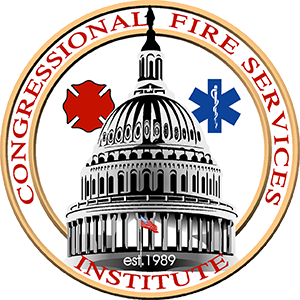On Wednesday, June 19th, the House approved H.R. 2740, the Fiscal Year 2020 Labor, Health and Human Services, Education, Legislative Branch, Defense, State, Foreign Operations, and Energy and Water Development Appropriations Act. The nearly $1 trillion spending package combines four bills previously approved by the House Appropriations Committee.
Included in H.R. 2740 is funding for the National Firefighter Registry. In 2018, Congress created the National Firefighter Registry, a specialized national cancer registry to provide researchers and epidemiologists with the tools and resources needed to improve research collection activities related to the monitoring of cancer incidence among firefighters. While Congress authorized $2.5 million annually for the program, H.R. 2740 originally only funded the program at $1.6 million for Fiscal Year 2020.
Congressman Bill Pascrell, Jr. (NJ-9), a co-chair of the Congressional Fire Services Caucus, and Congressman Chris Collins (NY-27) sponsored an amendment to fully fund the National Firefighter Registry. The House approved the Pascrell-Collins amendment by a vote of 413-10. The bill will now go to the Senate for consideration.
The House is currently debating H.R. 3055, the Commerce, Justice, Science, Agriculture, Rural Development, Food and Drug Administration, Interior, Environment, Military Construction, Veterans Affairs, Transportation, and Housing and Urban Development Appropriations Act. The bill funds the State Fire Assistance program at $83.105 million, an increase of 2.105 million over Fiscal Year 2019, and also funds the Volunteer Fire Assistance program at $19 million, an increase of $2 million over the current fiscal year.
Additionally, on June 12th, the House Appropriations Committee approved a draft Fiscal Year 2020 Homeland Security spending bill. The legislation funds agencies and programs within the Department of Homeland Security. The bill provides $47.225 million for the United States Fire Administration, an increase of $1.546 million over Fiscal Year 2019. The bill also increases funding for a number of grant programs, including:
- $750 million for AFG/SAFER (split evenly among the two programs), an increase of $50 million from Fiscal Year 2019;
- $700 million for the Urban Areas Security Initiative, $60 million increase from Fiscal Year 2019; and
- $625 million for the State Homeland Security Grant Program, $100 million increase from Fiscal Year 2019.
The Homeland Security spending bill will now go to the full House for consideration.
